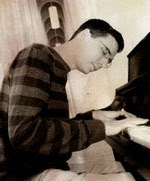Monday, April 30
She sat down in the back row. Aching. Her heart, aching from
too many negative events in her life lately. Her body, still aching from a
recent illness. Her feet, aching from standing all day, serving too many
hamburgers to truck drivers.
Still dressed in her uniform for work, Grace came to her
church’s midweek service, not having time to go home and change.
After the worship time was over, the preacher went to the
pulpit. “Today,” he started, “we’ll be doing something a little different. You
probably noticed that I didn’t give out the topic of my sermon for tonight. I
did that for a very good reason. I didn’t want you to stay away.”
What? All the
church members turned to their neighboring pewsitters with puzzled looks on
their faces.
“I want us to prepare our hearts for something special
tonight.” The preacher then called for the deacons to bring out bowls of water
and towels.
A soft moan of “oh, no” swept across the sanctuary.
“I want us to think of the days of Jesus and what servants
in His time did for those that entered their master’s house. As most of the
roads then were nothing more than dirt, the dust from walking stuck to one’s sandaled
feet. Mud or what the animals left behind might be stepped in as well! So, to welcome
guests into his home, a host provided a servant with water and a towel to
cleanse the dirt from the guests’ feet.
“It does not matter the condition of your feet today,
whether you have on holey socks or your feet smell from the day’s work. It
takes a servant’s heart to kneel before another, to humble himself or herself,
so please submit to the service of the one next to you and offer your service
to another with a meek heart.
“What was Jesus’ attitude when He washed the feet of the
disciples? Self-renunciation, humility, love, submission. It was a doulos attitude. Doulos is the Greek word for a bondservant, a slave whether
voluntary or involuntary, the highest form of self-renunciation.
“Jesus told the disciples that their attitude was to be like
His, for He did not come to be served but to serve.
“So, I want you to think of two things: one, as you are on
your knees, consider the attitude of your heart. Are you doing this grudgingly,
or are you doing it with a doulos
attitude? And two, as another washes your feet, what is your heart’s attitude?”
After praying, the preacher softly asked, “Do the sins of
others smell to you? Are there holes in their hearts? Are their souls,
s-o-u-l-s, worn out just as their soles, s-o-l-e-s, may be? There is no
judgment here tonight; only humble service of one to another.”
Every other member sitting in a pew lowered themselves to
wash the feet of the one next to them, treating them as a guest in the house of
their Master. While on their knees, they looked deep within themselves to
discover the attitude of their hearts.
Grace’s first reaction was to recoil: I can’t take my shoes off in front of these people! And I don’t want to
wash someone else’s stinky feet!
Jolting her out of her thoughts was the sound of shoes
dropping throughout the sanctuary. Submitting to the task, Grace bent down on
her knees to wash her neighbor’s feet.
Those that submitted to the washing wiped away the streaming
tears from their faces. Others were reticent or outright refused to remove
their shoes. Embarrassed, they pulled away just as Peter pulled away from Jesus
when He wanted to wash Peter’s feet.
As Grace left that night, she, too, had tears puddling in
her eyes, for her heart had changed, just as others had. All left the service
with thoughts of a servant’s heart, a doulos
spirit...
...with humility: as grace on its knees.
Do I have it? Do I have a willing doulos attitude that will...
*kneel before others with a humble servant’s heart to serve
them?
*help them cleanse the dirt accumulated from the path of
life?
*not judge the smell of others’ sins?
*comfort the pain of the holes in their hearts?
*uplift the distress of their worn out souls?
*not recoil from the “foot washing” service from others?
A. B. Simpson once said, “Christ made Himself the servant of
all, and he who would come nearest to Him and stand closest to Him at last must
likewise learn the spirit of the ministry that has utterly renounced selfish
rights and claims forever.”
What humble “foot washing” service can I provide for the
guests in the Master’s house?
~Lord, wash my feet that I may walk in Your humility and
pour out the sweet perfume of service on others as...
...grace on its
knees.
Joining up with ...




















































